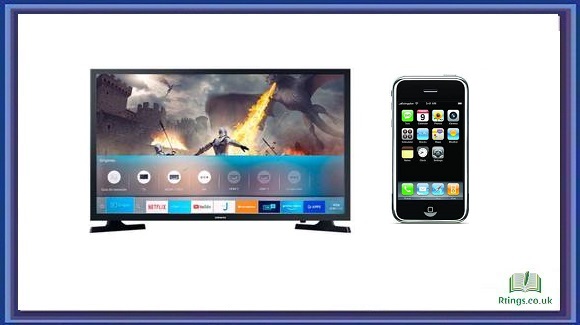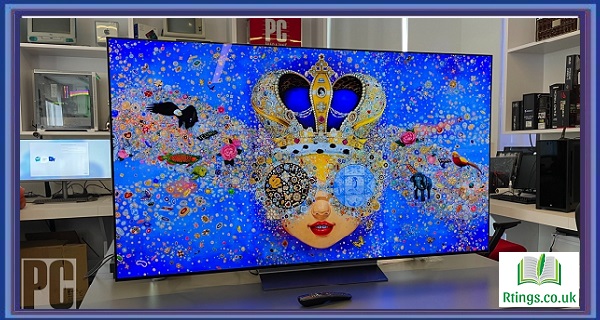Retuning your Samsung TV using the remote control is a straightforward process that ensures you receive the latest channels and maintain optimal picture and sound quality. Whether you’ve purchased a new TV, moved to a different location, or are facing channel-related issues, this comprehensive guide will walk you through the step-by-step process of retuning your Samsung TV. By the end of this guide, you’ll have the knowledge and confidence to retune your TV and enjoy a better viewing experience successfully.
Why Retune Your Samsung TV?
Before we dive into the retuning process, it’s essential to understand why it’s necessary. Several reasons may prompt you to retune your Samsung TV:
New TV Setup
If you’ve recently acquired a new Samsung TV, it’s crucial to retune it to receive the latest channel updates and configurations. This ensures that you can access all available channels and services.
Moving to a New Location
Changing your location, moving to a new house, or traveling with your TV can lead to different channel availability. Retuning your TV helps it adapt to your area’s new broadcasting frequencies and channels.
Channel Updates
Television broadcasters periodically change their channel lineups, frequencies, and broadcast standards. Retuning is necessary to stay up to date with these changes and continue receiving your favorite channels.
Resolving Channel Issues
Suppose you’re experiencing problems with certain channels, such as missing channels, poor reception, or audio and video quality issues. Retuning can often resolve these issues by refreshing the channel list and settings.
Preparing for Retuning
Before you start the retuning process, it’s essential to make some preparations to ensure a smooth experience:
Remote Control
Ensure you have the Samsung TV remote control with your television. You’ll need it to access the necessary settings and navigate the menu options.
Stable Power Supply
Make sure your TV has a stable power supply. Sudden power interruptions during the retuning process can disrupt the procedure and may require you to start over.
Antenna or Cable Connection
Ensure that your TV is connected correctly to the antenna or cable source. A loose or faulty connection can affect channel reception.
Internet Connection (Optional)
If your Samsung TV is a smart TV and you use internet-based streaming services, make sure it is connected to the internet. Some retuning processes may require an internet connection for firmware updates.
Automatic Retuning Using the Remote
Samsung TVs come equipped with an automatic retuning feature that simplifies the process of updating your channel list. Here’s how to use it:
Accessing the Menu
Press the “Menu” button on your Samsung TV remote control. This will open the TV’s main menu.
Selecting Channels
Navigate to the “Channels” or “Channel List” option using the arrow buttons on your remote control. Select this option to access the channel-related settings.
Automatic Retuning
Look for the “Auto Tuning” or “Auto Retune” option within the Channels menu. Select it to initiate the automatic retuning process.
Signal Source
You may be prompted to choose a signal source. Depending on your setup, select either “Antenna” (for over-the-air broadcasts) or “Cable” (for cable TV).
Starting the Scan
Press “Start” or “Scan” to begin the automatic channel scan. Your TV will now search for available channels and store them in the channel list.
Completing the Process
Once the scan is complete, your Samsung TV will display a message indicating that the retuning process has finished.
Reviewing the Channel List
You can now navigate your updated channel list and check for missing or new channels. Use the arrow buttons on your remote control to scroll through the channels.
Save Changes
If you’re satisfied with the updated channel list, save the changes. The specific button for saving changes may vary depending on your TV model but is typically labeled as “Save” or “OK.”
Exit the Menu
Exit the menu by pressing the “Menu” button on your remote control again. This will return you to the regular TV viewing mode.
Troubleshooting Retuning Issues
While the automatic retuning is generally straightforward, you may encounter issues or challenges. Here are some troubleshooting tips to help resolve common retuning problems:
Weak Signal or No Signal
Check your antenna or cable connection if you receive a weak or no signal message during retuning. Ensure that it’s securely connected to the TV.
Position your antenna or cable properly toward the broadcasting tower or source.
Consider using a signal amplifier or booster in an area with weak reception.
Missing Channels
If certain channels are missing from your list after retuning, double-check that you’ve selected the correct signal source (antenna or cable).
Please verify that the broadcaster or service provider has not changed their channel lineup, which could affect your access to specific channels.
Contact your local broadcaster or service provider if you still need help finding missing channels.
Poor Picture or Sound Quality
If you experience poor picture or sound quality on certain channels, ensure your TV is properly tuned to the correct broadcasting standard (e.g., PAL or NTSC).
Adjust your TV’s picture and sound settings, such as brightness, contrast, and audio, to improve the viewing experience.
If using an external audio system, check the connections and settings to ensure they are configured correctly.
Frozen or Unresponsive TV
If your Samsung TV becomes frozen or unresponsive during retuning, try unplugging it from the power source for a few minutes and then plugging it back in. This can help reset the TV.
If the issue persists, consult the TV’s user manual or contact Samsung’s customer support for further assistance.
Additional Tips and Considerations
Here are some additional tips and considerations to enhance your retuning experience and ensure ongoing access to your favorite channels:
Regular Updates
Make it a practice to regularly retune your Samsung TV, especially if you notice missing channels or changes in your channel lineup. Broadcasting updates can occur periodically.
Scheduled Retuning
Remember to retune your TV at specific intervals to ensure you receive new channels and updates.
Online Resources
Consult online resources, including your local broadcasting website or Samsung’s official support page, for information on channel frequencies and updates in your region.
Antenna Maintenance
If you use an external antenna, regularly inspect it for damage, wear, or corrosion. Replace or repair the antenna as needed to maintain optimal signal reception.
Professional Assistance
If you encounter persistent retuning issues or believe there may be a technical problem with your TV, consider seeking professional assistance from a certified technician or Samsung’s customer support.
Conclusion
Returning your Samsung TV using the remote control is a simple yet essential process that ensures access to the latest channels and the best viewing experience. Whether you choose the automatic or manual retuning method, following the step-by-step instructions in this guide will help you keep your TV up to date and enjoy a wide range of channels and content. Regularly checking for updates and addressing any issues promptly will ensure you never miss your favorite shows and programs. Enjoy your improved TV viewing experience!






